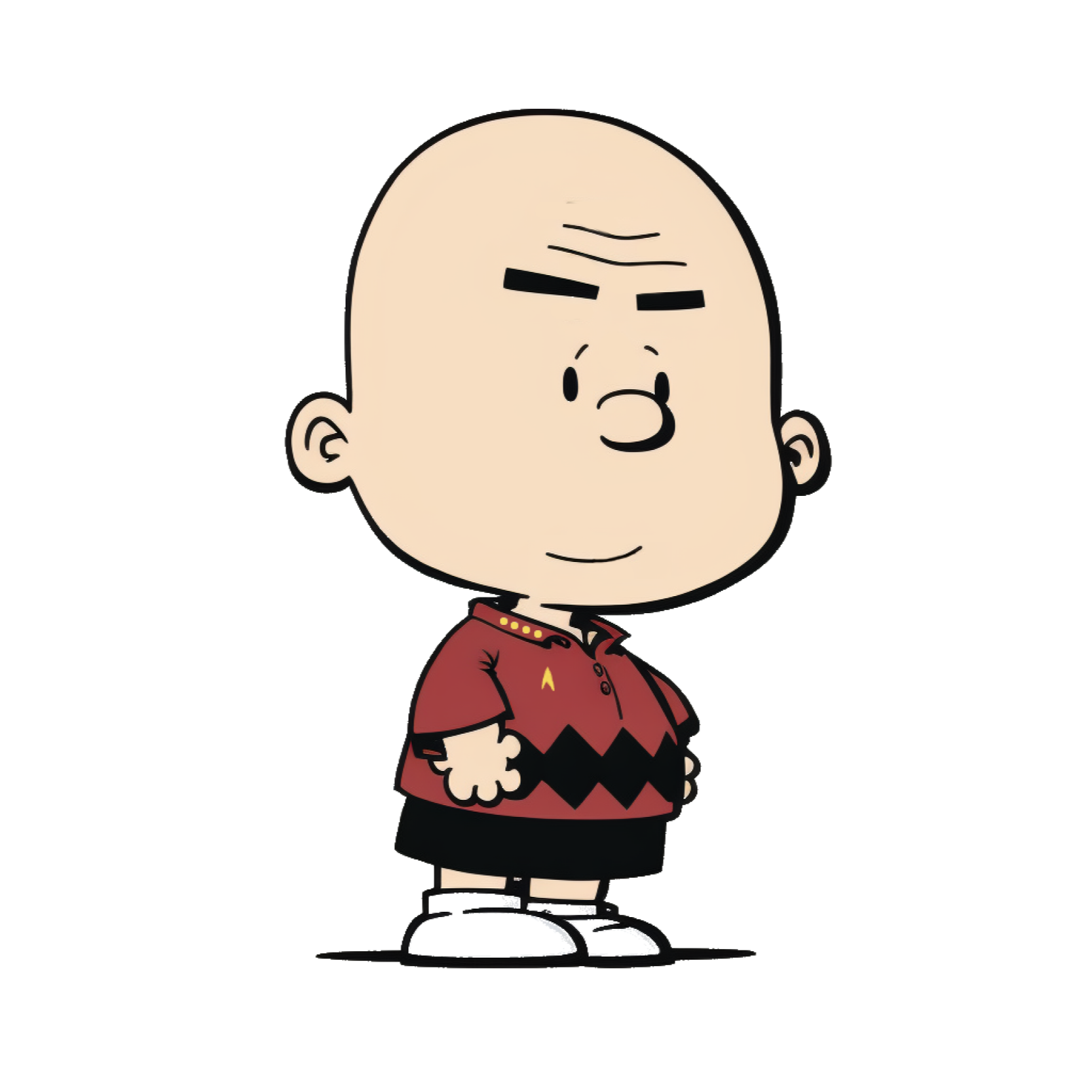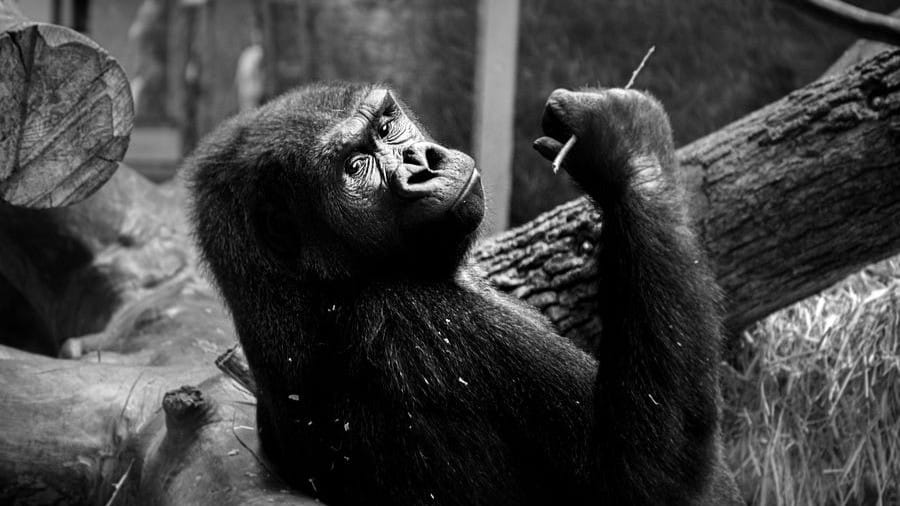Beneath the inequality, the distrust, the polarisation, the flood of disinformation, the rise of toxic deference to authoritarian culture and the tech-driven changes to everything lies a problem that poses an even more complex threat to democracy - a long unresolved void of value and purpose.
Economies and entire civilisations have been built around whatever gives people more stuff to do. But as is becoming increasingly clear, just doing stuff, isn’t enough.
If we want democracy to survive, we first have to be willing to face the bored ape.
If you haven’t seen it already, there’s a great show on Netflix called ‘Norsemen’ — a deadpan send-up of the more serious quasi-historical fare from the History Channel, which focuses on a small Viking village and its inhabitants and is made by, would you believe it, actual Norwegians. It’s good, not just because of a dry relatable sense of humour, but because of an offhand and often neglected depiction of the mundane.
On a good day, satire has the ability to transcend reality and wind up being, accidentally or not, more believable than over-the-top dramatic offerings (‘Life of Brian’ springs to mind). But what struck me when watching this, as has happened a few times while consuming ‘historical’ fiction (‘The Great’ is another one), is just how profoundly bored some folks are and must have been for the vast majority of the time.
More than that, how that boredom, in particular (it should be mentioned) for men and the ruling classes, must have influenced what we now regard as some of the more important parts of history.
So often our ‘period pieces’ get swept up in the obvious theatrical demand for iconic moments and dramatic events of historical significance (of which there are no doubt plenty) that they almost completely obfuscate the all-to-human thumb-twiddling that goes on in between.
While contemporary news media and information systems have been routinely critiqued for narrowing our view of each other, that same basic perception bias that gives people Instagram-warped ideas of how they should look and how exciting their lives should be has also gifted us with an unreasonably action-packed account of history that twists expectations of the present.
In the same way that we paint a picture of the contemporary world by zeroing in on points of interest, history does the same. Drama is noteworthy. An evening spent watching TV or sitting around a campfire and having a beer with your friends is not. That tendency to ignore the overwhelming prevalence of time spent sharing, lazing about and not murdering each other lends itself towards mischaracterising the drama that does happen.
What we inherit from this narrative is a view that human history is dominated by power plays, ‘aha!’ moments of sheer genius and wilfully violent and destructive acts. It implies that one thing leads to another, creates connections that don’t exist and ignores connections that do. It also amplifies character traits.
For example in nature, rather than being motivated by any strong anthropomorphic emotion, most violence is incidental, functional or attributable to boredom. Lions eat because they’re hungry, not because of a deep-seated animosity towards antelope. Then, when full, they tend to sleep and play with their food. It’s not innately hateful. I’m certain it could learn to be. But for the most part, a lion is merely a bored arsehole. A savanna Viking if you will. Yet we are to believe that climbing down from the trees gave us all an instinctive loathing for each other. It simply doesn’t hold. More likely, our animosity and the horrors we do commit upon each other, descend from a vapid attachment to the systems and practices that provide us with an equally vapid sense of meaning and purpose.
It’s easier to hold on to them, than it is to try anything new.
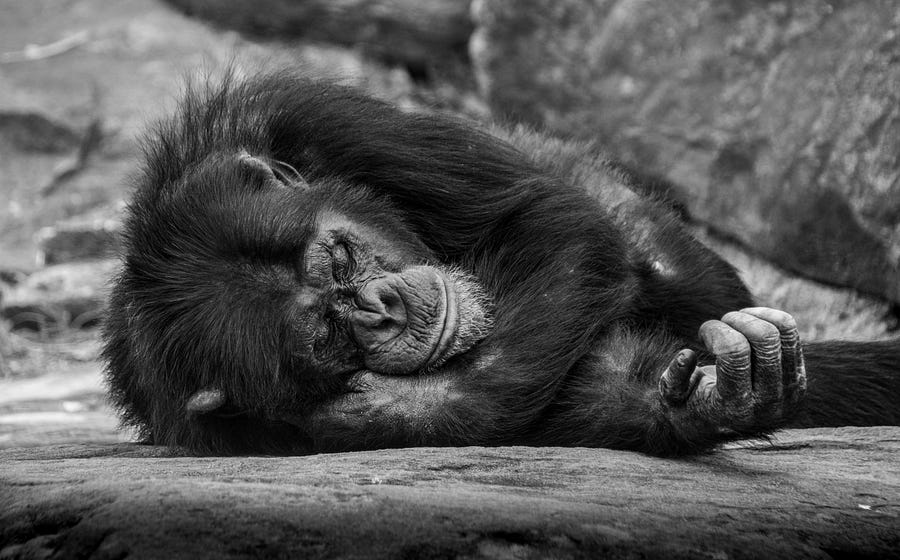
There is also a prevailing historical wisdom which suggests that horribleness increases with scarcity. Conflict is typified as being over resources, with religion and ideology an occasional feature. Yet if it was true that this was inversely proportional to the availability of resources, then it would have struck with the greatest severity consistently at our point of greatest vulnerability and pummelled us into non-existence long ago.
Instead, the points in history that precipitated the greatest conflict were those of relative abundance. The rise of Rome, colonial Europe, imperial China, the emergence of the United States, the industrial revolution and so forth. Moments where great surges in technology and prosperity, often derived from slavery of one kind or another, laid bare a great and long-buried void in our souls.
A progressive overcoming of desperation, is also a progressive encounter with boredom
No longer drowning in drudgery and hard labour, the newly minted citizenry encountered a taste of that enjoyed by the ruling classes. Many invented new and interesting things to occupy themselves with. Many others did not.
The solution, implemented with typical prematurity and usually handed down from seats of authority rather than explored organically, was to re-emphasise the value of occupation.
The people needed to be kept busy.
Whether by way of war or entertainment or perhaps some new thing that sort-of needed doing or people that needed conveniently despising. So long as people were once more ensnared in occupation, rulers could continue collecting art, drinking wine and being no more fulfilled than anyone else.
The problem of course (then, as it is now) is that if you encourage people to base their sense of purpose and well-being around something fundamentally unstable and subject to change (like an economic role, a national identity, a football team, gladiator or TV show fandom), then any disruption in that thing becomes an earthquake.
Change, difference and progress become a threat. The void is exposed. The cycle repeats.
It happened before and it's happening again.
Though this might sound rather dire, it should come as some consolation. It is usually not the newly bored masses that precipitate the greatest violence, but the deranged projections of the long bored and lackadaisical. A reaction to change, rather than change itself. More often than not, the greatest horrors are committed by those who have a lot and don’t know what to do with it, or themselves.
The violence of creative desperation is dwarfed by the violence of bored protectionism.
Humans are not terrible by nature. We survive, in actual fact, because we tend to band together and help one another when we need to. We support each other through difficult times and give, even when, or especially when, we have little to offer.
That sense of camaraderie and community offers more, it would seem, in the way of reliable and meaningful purpose, than any job. For a large enough chunk of history and a large enough chunk of people, it has also provided an emotional fall back. Family in particular. The trusty legacy of shared value, contribution and reproduction in which we make new versions of ourselves, enshrine the practice in sacred duty and pass our existential crises on to the next generation.
In most cases, it was fairly effective. But we’re a restless bunch and we still look for things to do.
Ordinary Humans
Poetry, oratory, writing, philosophy, art, invention, scientific discovery, religion and creation of all kinds. Carl Sagan, the magnificent optimist that he was, loved to talk about the human spark of genius and an innate spirit of exploration. Something we owe for all our advances. Something that tells the inspiring journey of human development through the ages.
In many ways he was right. Humanity can be beautiful. But it can also be ordinary. He knew that too.
“In general, human societies are not innovative. They are hierarchical and ritualistic. Suggestions for change are greeted with suspicion: they imply an unpleasant future variation in ritual and hierarchy: an exchange of one set of rituals for another, or perhaps for a less structured society with fewer rituals. And yet there are times when societies must change.” — Carl Sagan, Dragons of Eden.
While this potential exists within us, its expression has been historically muted by other concerns and less glamorous facets of the human condition. In truth, we are neither angels nor demons.
Yet there is an alternative to both the ‘brilliant adventurous’ human and the ‘violent stupid’ human historical narratives so routinely presented by a narrow reading of history — that of the ‘bored, confused and entirely ordinary’ human.
This is the human that has spent millennia trying to work out what to do with itself and still can’t quite get it right. The human that came down out of a tree because it was hungry, settled down because of a reliable food source and started killing its kin because it was scared, incompetent and didn’t have a heck of a lot else going on.
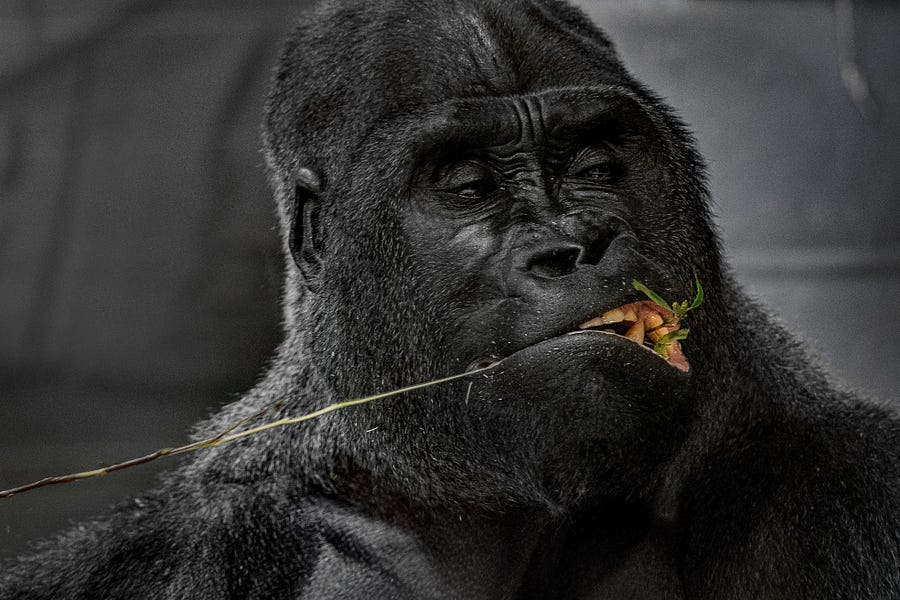
This human built walls, cities and temples because it was a little nervous, sent others to war because it lacked imagination (went to war because it lacked options) and put people to work moving ridiculous stone blocks in the hope they would be remembered and no one would catch on to the fact they had no idea what they were doing.
It seeks power, money, spiritual enlightenment and whatever else seems appropriate at the time because it thinks maybe it will fill a void it can’t explain and then, once it attains this invented metric of success, it can’t help but try and validate itself by bludgeoning others with the same doctrine.
This poor, unfortunate human has spent generations building and participating in systems of mutually manufactured purpose because it is either clinging to a weak thread of meaning in a sea of uncertainty or is coerced by those who do. Occasionally it’s the human that, having acquired a life of relative comfort and prosperity, paradoxically binge-watches ‘The Walking Dead’ and fantasises about a simpler life in the apocalypse.
It can sometimes be convenient to imagine that people were simply happier with less in earlier times, taking greater satisfaction from evening conversation, family, friends and nature. Maybe they were more in touch with themselves and each other. But it’s a fair bet they were at least as bored, confused and unfulfilled as we are.
For thousands upon thousands of years, whether king, peasant or Netflix subscriber, a huge wealth of humanity has spent reasonable chunks of its days sitting around muddling through and passing the time on trivial nonsense, while others do the work for them.
Coming up with stuff to do is and always has been a chore.
Viking Economists
Any kind of daily labour on immediate necessity is usually sufficient occupation to ignore the question that burns underneath. The need for simple things like food, shelter and safety kept us preoccupied for the better part of an aeon. But as those problems disappear and thankfully continue to disappear for millions of people, we are left hunting around for something else.
The evolution of our economic systems from complex gift economies to complex debt economies to modern capitalism with an occasional social twist is predicated, not on success as an actual economic system, but on success at essentially making up things for people to do and then compelling people to do them.
It fills the same void as the construction of a new temple or the raiding of a nearby village. Far less about the desperate need for new temples, shiny trinkets, cell phone covers or opinion pieces than it is about the need to keep people busy and the boredom of drinking all day.
This is no small part of the reason why so many claims are made about the linkage between economic ‘modernization’ and peace. It’s hard to get in a fight when you’ve got to be up for work in the morning. But the credit would seem undue. Like calling a hat a cure for baldness.
Every industrial leap has come with a million new little tasks and coerces folks into desperately running around to fill in the blanks. Capitalism is great at that. Few (if any) systems have been so effective.
As a means of efficiently and equitably encouraging and rewarding human endeavour towards meaningful purpose, it is less than adequate. But as a mechanism for making things up and keeping people busy, with no regard to their (things or people) actual value, it’s top-notch.
To be fair, socialism and communism aren’t really any better. The fact that the line of economic debate since the 19th century has been drawn between a group of systems all of which seem hopelessly focused on just inventing and assigning people something to do, betrays the underlying condition.
Indeed, every human society since the dawn of civilization seems to be wearing the same cap.
Basically, we’re not very good at deciding how to bring ourselves any reliable measure of fulfilment and instead rely on other people and larger systems to do it for us. We feed into them and credit them, because it seems less risky and saves us the responsibility.
Ultimately, our problem is not that we are stupid or terrible. Our problem is that we are bored and the universe provides no direct indication as to what we should be doing with ourselves, so we latch on to whatever.
We’ve had to make it up as we go along and there has been mixed success. Some seem to get it. Yet nothing — not fighting wars, not building pyramids, not religion, business, science, philosophy or blogging — has ever hit the one-two combo of providing reliable meaning, available to the vast majority of people.
So here we are. Bored apes
Sure, there are a lot of things that objectively need to be done. There always has been and likely always will be. But the more time passes, the more technology advances, the smaller the share of total economic activity those things occupy.
The production of goods or provision of services might increase in efficiency, but as far as people go, we seem unconcerned by whether or not they are doing something meaningful and solely concerned with them simply doing something. Entire industries exist, not because they actually need millions of people to spend their entire lives operating them, but solely for their role as job creators.
However, any economic system that values creating jobs over creating value and purpose, will fail. And unfortunately, we have a habit of just shifting from one version to the next.
What we should be worried about is what happens when this latest iteration inevitably collapses under the weight of its own inadequacy.
There’s already a few signs of wear and tear. Spiralling inequality. A precipitous encounter through technology with the wider world that has people questioning established order. Massive distrust in legacy institutions. Enormous automation that seems to disregard the need for people altogether. And more recently a pandemic that revealed how inefficient and ill-valued so much of our work actually is. Millions were laid off. Millions quit. And millions more had a lot more time to themselves.
There is a reckoning afoot.
Historically, the most popular mechanism for keeping revolution at bay has been to ensure that enough have enough. Enough to eat. And enough to do. We have been bargained with and tempered. But while the former is no doubt vital, the latter is a little more suspect. Appealing to our fear of the unknown.
There might seem to be a nihilistic bent to this narrative. One that implies humans are incapable of finding meaning and are resigned to drudgery or violence. But that is plainly not true. We find meaning all the time. It’s just that the privilege of escape from the meaning-production facility is rare. Some achieve it as a function of their birth. Others achieve it on their own volition. However, it’s inevitable that even under optimal circumstances, not everyone will.
As a species, our imagination has been dulled by persistent occupation. A long history of boring people building and reinforcing boring systems to occupy bored masses of people and inhibit them from doing anything too wild and interesting. Many of them are victims of their own lack of imagination. Vested as they are in the trivial threads of purpose provided by a life of moderate wealth.
We have to break free.
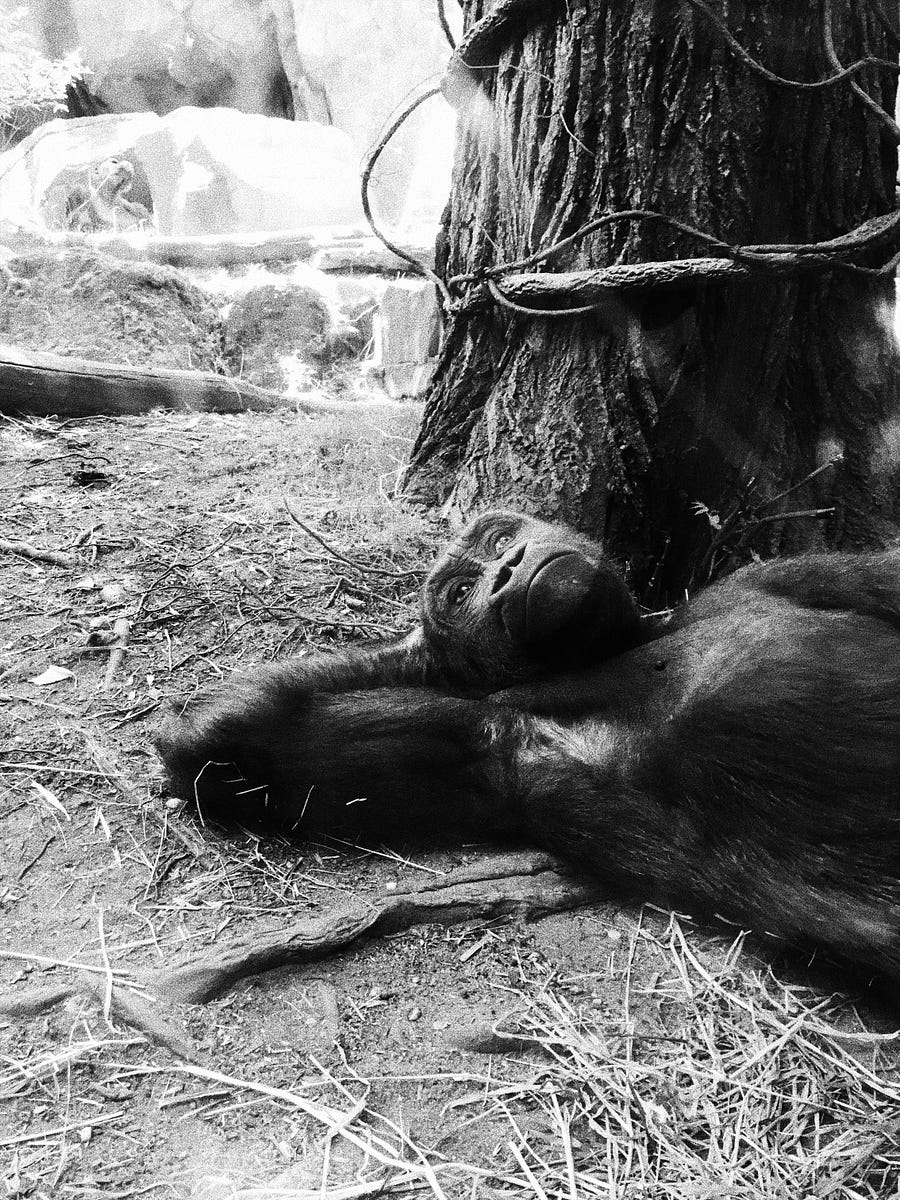
Bored Apes
The result is that we have never really confronted our boredom. Never been truly deprived of occupation long enough to consider what ‘we’ as individuals or communities actually think is important and worthwhile to do.
We have therefore never had the opportunity to approach any large-scale contentment. It’s an encounter that needs to happen, yet any societal change that facilitates it will inevitably unleash both a torrent of creativity and a flood of anguish, as our days, finally become our own.
We have all felt degrees of this, throughout the last few years.
In the past, the sudden enfranchisement of people with new choices led to everything from freedom, discovery, poetry and art to war and the collapse of civilizations. It brought forth new meaning for some and new mechanisms of manufacturing meaning for others.
But that was a transition from desperation to dependence. Freedom, with conditions. Citizenship, with a job. Just as we start to discover who we are, or might be, the larger organism responds by panicking and re-purposing, leaving hollow devastation in its wake.
We are currently living through the consequences. The void laid bare. And the reaction threatens everything - not least of which is democratic governance.
There’s only one thing we have never tried — not ever — and that is setting people truly free to find their own meaning. To be fair, that's partly due to the fact we have never been so adequately empowered to do so. Yet here and now, the conditions are different.
Through a convergence of trends in technology, culture and politics, we have a choice.
On the one hand, the capacity and the opportunity to once more repurpose and occupy at an unprecedented scale - to drag people into the next age tired and desperate. But if we do that, the reckoning will come. And when it does, it will burn everything down.
Or, through that same convergence, we could finally liberate people from both the desperation of life without what they need and the drudgery of life with work they don’t want.
It is worth considering what billions of bored apes might do next.
Perhaps, maybe, get more involved in politics? Bad for a lot of rich or powerful folks who will probably be ok.
Good for democracy.
